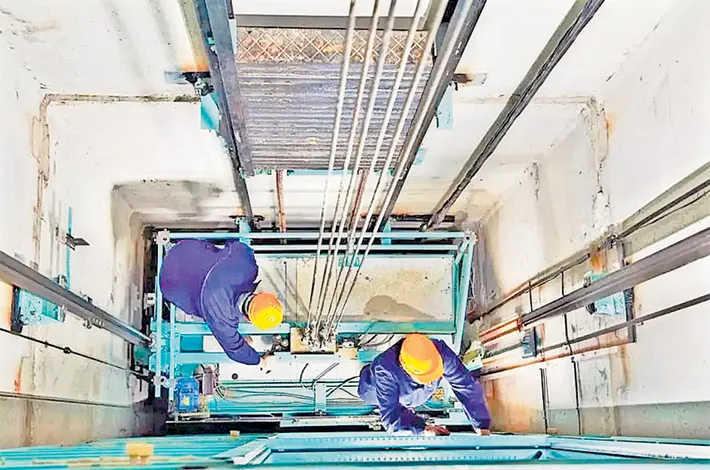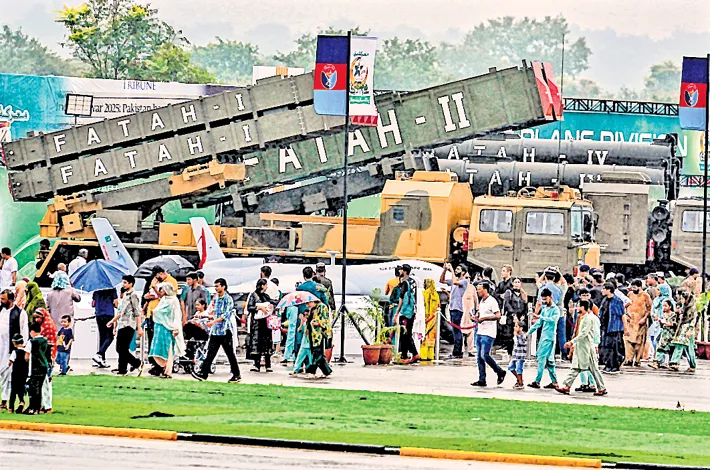Lifts the new death traps
03-05-2025 12:00:00 AM

■ Telangana still does not have a Lift Act in place
■ Four accidents reported last month
■ Low quality materials and low maintenance are main reason for accidents
Many apartments are using low quality lifts and use collapsible door lifts instead of automated door lifts. Karnataka, Maharashtra and Tamil Nadu have already banned collapsible door lifts. B Narsing Rao President, Telangana Elevators and Escalators Association
SRINIVAS REDDY | Hyderabad
Lifts and escalators are turning out to be new death traps in Hyderabad city, four lift accidents were reported last month. Some have lost their lives and others are severely injured. According to experts one of the reasons is opting for collapsible door lifts in apartments. It may be noted that collapsible lifts are banned in other states like Karnataka, Maharashtra and Tamil Nadu. But in Telangana state, people are still using these lifts.
These incidents serve as a severe reminder of the pressing need for comprehensive safety regulations, implementing strict standards, ensuring regular maintenance, and enforcing accountability to safeguard residents.
These all points have been covered in the Lifts Act, which is not yet implemented in Telangana state yet. Neighbouring state Andhra Pradesh introduced this act last month. While a draft bill was prepared in 2015, it hasn't been formally enacted yet. According to the government officials, the state is actively working on implementing the Telangana Lifts Act. It is in the final stages of approval and is expected to be rolled out soon.
The proposed act aims to address concerns about lift safety and accidents, particularly in Hyderabad, where there have been several incidents. The lack of a Lift Act in Telangana has led to concerns about substandard installations and the use of unqualified personnel. Last month a four-year-old boy named Narender tragically died after getting stuck in the gate of a lift in the city. In another incident, the boy, who was the son of the apartment’s watchman, was caught in the collapsible doors when the lift started ascending.
In a similar accident, two construction workers fell into a lift shaft in the Miyapur area. One person died, and the other was severely injured in this incident. Other incidents include a 6-year-old boy who died after being trapped in a lift shaft in Masab Tank, and recently a police officer died when fell down in lift shaft in Sircilla.
Speaking to Metro India, B Narsing Rao, President, Telangana Elevators and Escalators Association (TEEA) said, “Many apartments are using cheap quality lifts and they are still using collapsible doors lifts instead of automated doors lifts, where it has banned in other states like Karnataka, Maharashtra and Tamil Nadu. They are not installing lifts by calculating the building capacity and they are not maintaining lifts properly.”
‘Main thing is building owners are not installing transformers for the lifts operations and instead they are giving direct electrical connection to the lifts, which are causing more accidents when there is a low voltage,’ he said. ‘Moreover, there is no awareness among people how to use lifts properly and they overburden the lifts sometimes and management depends on mechanics, which are not well trained in handling technical issues,’ said TEEA members.
For 100 people apartments, they need minimum 6 to 8 members’ capacity lifts, but many apartments go for 4-5 members capacity lifts to save money and many go for direct power connection, instead of having transformers. Due to overload and power fluctuation, lifts used to struck in between and people panic many times. Sometimes, these incidents cause major injuries or deaths.
Sometimes, users’ negligence also causes damage to the lifts. In some cases, building owners or management missed out on keeping sign boards of intimating that lifts are not in good condition or it’s in repair condition.








